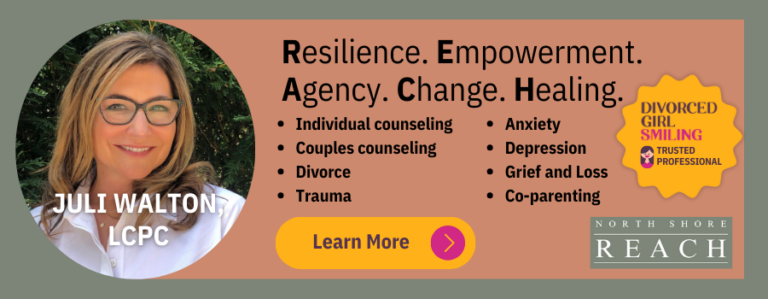What is self-compassion? Let’s start with “what is sense of self?” In our complex and dynamic world, external factors exist that we have little to no control over. This creates internalized emotions that we often misread, misinterpret, and misunderstand. We spend time trying to eat healthier, sleep better, achieve balance, be mindful, and access our tools, all with the intention to “fix” what is wrong. In other words, if we execute agency over our “selves,” we will surely find happiness.
In addition to all of our time spent engaging in self-help, (some of which is actually very valuable), there is a new mastery of therapeutic knowledge and language gained through pop culture, reinforcing that a quick post of thoughtful affirmations, using clinical buzzwords, can provide answers to improving our “selves”.
Relationship with Ourself
The truth is, many of us do not really understand our own relationship with our “self” because we are focused on how we relate to others, and the world. We were raised with family and social norms that directed much of our development and how we evolved, informing our value system and ability to move within the world. It takes a depth of knowledge, hard work, and commitment to understand who we are, and our emotionally wired self.
Learning to understand your “self” means having a self-relationship, which is your own ongoing internal dialogue and connection. This is important because positive and healthy agency comes from having a keen sense of self, and a healthy self-relationship, providing countless benefits. Some of these include Better Mental Health, as a positive sense of self can significantly reduce anxiety and depression, while fostering a more stable and resilient mental state.
We can gain Clarity in Self-Understanding because when we better understand our needs, desires, and goals, we find more fulfilling life experiences and are more comfortable in our decisions. This relationship also fosters Personal Growth by being comfortable with Introspection and self-awareness, which are foundational and essential for personal development and growth. Additionally, we become capable and proficient at Instilling and Understanding Healthy Boundaries.
This art of establishing and maintaining healthy boundaries in relationships with others is a clear sign of respect for yourself. Another benefit of being comfortable in our self-relationship, is that it fosters a greater ability to Enhance and Improve Relationships with others. A healthy self-relationship enables you to interact more authentically and positively with others, as you are less reliant on external validation. Additionally, the benefit of Empowerment that is organic within a healthy self enables us to make choices that align with our true self, improving agency and a measure of control.
Understanding the concept of how important a self-relationship is, allows us to identify deeper and more personal ways to care for our self, with Self Love and Self Compassion. In the intricate dance of understanding our own self-relationship, both self-love and self-compassion play crucial but separate roles in mental and emotional stability and resilience. The nuances between these two roles are subtle yet, they are both essential components of emotional well-being, while they differ in focus and application.
What is Self-Love
Self-love involves recognizing and appreciating one’s inherent value and worth. It encompasses actions and attitudes that promote personal growth, self-acceptance, and overall happiness. Practicing self-love means treating oneself with kindness, setting healthy boundaries, and engaging in self-care routines. It is a proactive approach to nurturing one’s physical, psychological, and spiritual well-being to being completely aligned with a physical and emotional state.
What is self-compassion?
Self-Compassion, on the other hand, is about treating oneself with kindness and understanding, especially during challenging times of failure or hardship. It involves acknowledging one’s imperfections and treating oneself with the same care and concern (compassion) that one would offer a friend in similar circumstances. Self-compassion is characterized by self-kindness, a sense of common humanity, and mindfulness, and showing yourself grace when it is needed.
Key Differences:
- Focus: Self-love is centered on recognizing and appreciating one’s value and worth, while self-compassion focuses on treating oneself with kindness during challenging times.
- Application: Self-love involves proactive actions that promote personal growth and well-being, such as setting boundaries and engaging in self-care. In contrast, self-compassion is more about how we relate to ourselves in the moment, especially during tough times.
- Emotional Response: Self-love is associated with positive feelings of self-acceptance and happiness. Self-compassion, however, is more about offering oneself kindness and understanding in the face of imperfection or failure and providing empathy and gentleness.
Both self-love and self-compassion are vital for mental health and resilience. While self-love builds a foundation of self-worth and happiness, increasing strength and resilience, self-compassion provides the emotional support needed during challenging times. Together, they contribute to a balanced and meaningful self-relationship, with a healthy sense of self.
Benefits of both self-love and self-compassion
Increased Self-Awareness: understanding and checking in with yourself regularly to identify what you need emotionally, mentally, and physically. Self-awareness leads to better decision-making and self-care choices and allows space for personal validation instead of seeking approval from external sources. You are more likely to learn from mistakes and challenges in a constructive way, rather than being bogged down by guilt or shame.
Better Coping Skills and Dealing with Adversity: Self-love helps you approach challenges in a compassionate way, allowing you to manage setbacks with grace. You are more likely to reframe roadblocks as an opportunity to gain experience rather than sources of despair.
Setting Stronger Boundaries: This help to increasing your communication, and build stronger external relationships. By respecting your limits and preventing others from treating you in ways that compromise your self-respect, you end up not overextending or going outside your safety zone.
Improve Mental Health: Overall Mental and Emotional wellness will be affected through the encouragement of a positive mindset and help prevent negative thought patterns, increasing resilience, making it easier to navigate challenges and more likely to bounce back from setbacks. When you accept yourself, you are less likely to fall into cycles of self-criticism or hopelessness, which can link to anxiety and depression.
Self-love is about being authentic, embracing who you are, and recognizing your value. It is a journey of personal growth and understanding that can evolve over time. When you practice self-love, you develop a stronger sense of self-worth, The more you nurture your self-love, the more you will experience an improvement in your life.
On the other hand, Self-compassion is the specific act of kindness and understanding towards yourself, particularly in tough times. It is the soothing balm that enhances resilience, while reducing stress and encouraging growth.
Self-love establishes a stable foundation of positive self-regard, while self-compassion provides the necessary support and kindness during moments of struggle. Together, they create a transformative, balanced and nurturing self-relationship.
Like this article? Check out “How to Handle Running into Your Ex”






















I definitely recommend giving it a shot! Self-compassion can assist you in navigating divorce recovery without blaming yourself or letting anger to take control. It helps us to recognize where we are so that we may find inner peace and become comfortable with being a caring, messy person!